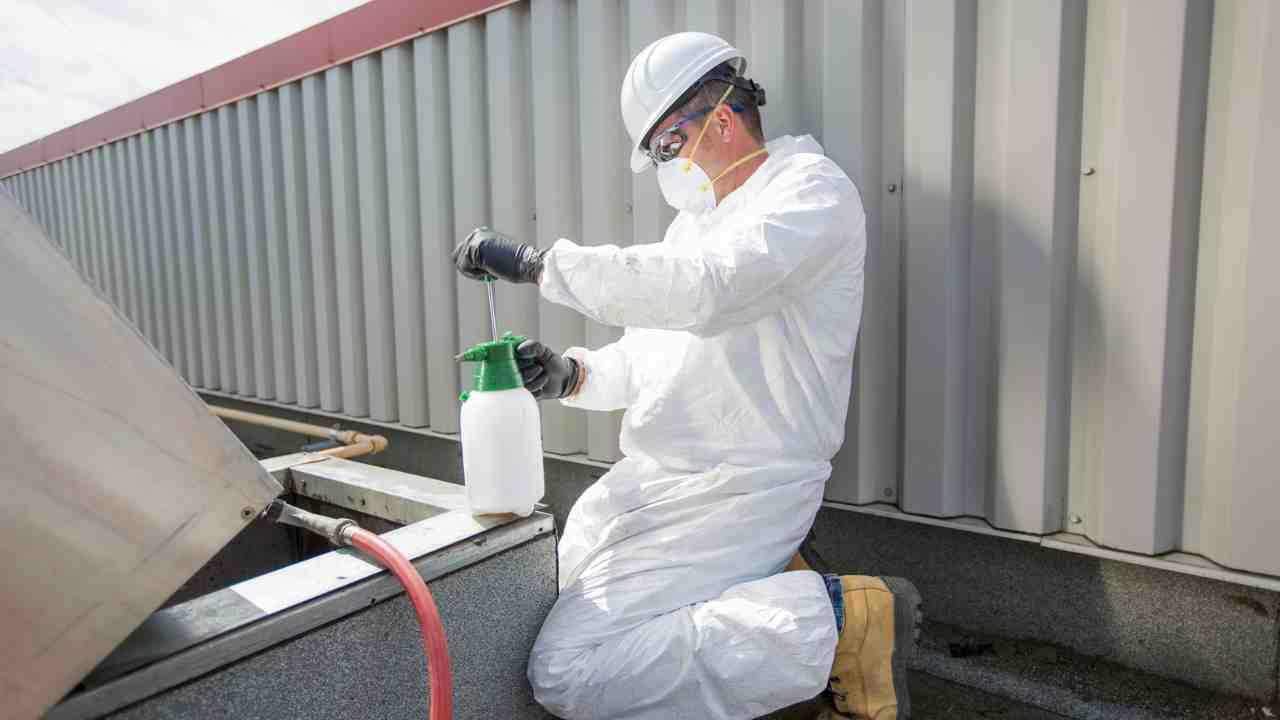The Science Behind Hood Cleaning and Fire Prevention

Ontario-wide Kitchen Exhaust and Hood Cleaning – Best prices and service guaranteed.
Cleaning the hood is a vital component of fire safety in commercial kitchens, yet it is one that is often neglected. The hood, also known as the exhaust hood, is an essential component of any kitchen because of its function in eliminating smoke, grease, and other airborne impurities. On the other hand, it has the potential to develop into a serious fire danger if it is not maintained and cleaned correctly. In this piece, we will investigate the scientific rationale behind hood cleaning and the prevention of fires. We will emphasize the significance of routine maintenance and the possible repercussions of disregarding this vital responsibility.
The Role of the Hood in Fire Prevention
The hood is an essential component of a commercial kitchen’s ventilation system. Its primary function is to capture and remove smoke, heat, grease, and other pollutants generated during cooking. By doing so, it helps maintain a safe and comfortable working environment for kitchen staff while also preventing the buildup of harmful contaminants.
One of the most significant fire hazards in commercial kitchens is the accumulation of grease. As grease-laden vapors rise from cooking surfaces, they can easily condense on the interior surfaces of the hood and its ductwork. Over time, this buildup can become a highly flammable substance, increasing the risk of a fire outbreak.
Furthermore, the hood also plays a crucial role in preventing the spread of fire. In the event of a fire on the stovetop, the hood’s exhaust system quickly captures and removes the smoke and heat, preventing the fire from spreading to other areas of the kitchen. This rapid removal of heat and smoke helps contain the fire and provides valuable time for evacuation and fire suppression efforts.
The Importance of Regular Hood Cleaning
Regular hood cleaning is essential for maintaining a safe and functional kitchen environment. By removing grease and other contaminants, it helps prevent the buildup of flammable substances and reduces the risk of fire outbreaks. Here are some key reasons why regular hood cleaning is crucial:
- Fire Prevention: As mentioned earlier, the accumulation of grease in the hood and its ductwork significantly increases the risk of a fire. Regular cleaning helps remove this flammable buildup, reducing the chances of a fire outbreak.
- Improved Air Quality: A clean hood ensures that smoke, odors, and other pollutants are effectively removed from the kitchen. This helps maintain a healthier and more comfortable working environment for kitchen staff.
- Efficient Ventilation: A clean hood and exhaust system allow for optimal airflow, ensuring that the kitchen remains properly ventilated. This is crucial for removing excess heat and maintaining a comfortable temperature in the kitchen.
- Compliance with Regulations: Many jurisdictions have specific regulations and guidelines regarding hood cleaning and maintenance. Regular cleaning helps ensure compliance with these regulations, avoiding potential fines and penalties.
The Science Behind Effective Hood Cleaning
Now that we understand the importance of regular hood cleaning, let’s delve into the science behind effective cleaning methods. Proper hood cleaning involves more than just wiping down the visible surfaces. It requires a thorough and systematic approach to remove grease and other contaminants from all areas of the hood and its associated components.
Understanding Grease: To effectively clean a hood, it is crucial to understand the nature of grease. Grease is a complex mixture of fats, oils, and other organic compounds. It has a high carbon content, making it highly flammable. Grease can solidify and accumulate on surfaces, creating a sticky and stubborn residue that is difficult to remove.
Chemical Degreasers: Chemical degreasers play a vital role in hood cleaning. These specialized cleaning agents are designed to break down and emulsify grease, making it easier to remove. When selecting a chemical degreaser, it is important to choose one that is specifically formulated for kitchen hood cleaning and safe for use on stainless steel surfaces.
Pressure Washing: Pressure washing is a commonly used method for cleaning hoods and their associated components. It involves using high-pressure water jets to dislodge and remove grease and other contaminants. Pressure washing is effective in reaching inaccessible areas and removing stubborn buildup. However, it should be performed by trained professionals to ensure safety and prevent damage to the hood and its components.
Manual Cleaning: In addition to pressure washing, manual cleaning is also an essential part of hood maintenance. This involves physically scrubbing and wiping down surfaces to remove any remaining grease or residue. It is important to use appropriate cleaning tools and techniques to avoid damaging the hood’s surfaces.
The Consequences of Neglecting Hood Cleaning
Failure to properly clean and maintain the hood can have severe consequences. Here are some potential risks and consequences of neglecting hood cleaning:
- Increased Fire Risk: Neglected hoods with excessive grease buildup are highly susceptible to fire outbreaks. The accumulated grease can ignite easily, leading to a rapid and uncontrollable fire.
- Health Hazards: A dirty hood can lead to poor air quality in the kitchen, exposing kitchen staff to harmful smoke, odors, and other pollutants. Prolonged exposure to these contaminants can cause respiratory issues and other health problems.
- Reduced Efficiency: A clogged and dirty hood hampers the ventilation system’s efficiency, leading to inadequate removal of heat, smoke, and odors. This can result in an uncomfortable working environment and decreased productivity.
- Non-Compliance: Neglecting hood cleaning can lead to non-compliance with local regulations and guidelines. This can result in fines, penalties, and even closure of the establishment until the necessary cleaning and maintenance are completed.
Hood cleaning is a critical aspect of fire prevention in commercial kitchens. Regular cleaning and maintenance of the hood and its associated components help prevent the buildup of flammable substances, improve air quality, and ensure efficient ventilation. Effective hood cleaning involves understanding the nature of grease, using appropriate chemical degreasers, and employing methods such as pressure washing and manual cleaning. Neglecting hood cleaning can lead to increased fire risk, health hazards, reduced efficiency, and non-compliance with regulations. By prioritizing hood cleaning and maintenance, commercial kitchens can create a safer and healthier environment for their staff while minimizing the risk of fire outbreaks.
Learn more about “The top reasons why hood cleaning should be a priority for all kitchens” right here.
Frequently asked questions about The Science Behind Hood Cleaning and Fire Prevention.

What is the science behind hood cleaning and its role in fire prevention?
The science behind hood cleaning revolves around understanding the nature of grease and its combustion properties. During cooking, grease particles become aerosolized and are drawn up into the kitchen exhaust hood. Over time, these particles accumulate on the interior surfaces of the hood, ductwork, and exhaust fans.
Fire prevention is achieved through regular hood cleaning, which removes these grease deposits before they can become fuel for potential kitchen fires. When grease buildup reaches a critical point, the chances of ignition increase significantly. In the event of a fire, the flammable grease acts as a ready fuel source, causing flames to spread rapidly throughout the kitchen and beyond, endangering lives and property.
How does the accumulation of grease contribute to fire hazards in commercial kitchens?
The accumulation of grease in commercial kitchen exhaust systems is a serious fire hazard due to its flammable nature. As grease deposits build up, they form a sticky, highly combustible substance. When subjected to heat from cooking appliances, these deposits can ignite, leading to a grease fire.
Grease fires are particularly dangerous because they burn at extremely high temperatures, making them difficult to control and extinguish. Moreover, if the fire spreads into the ductwork, it can rapidly extend to other areas of the building, causing extensive damage and putting lives at risk. Regular hood cleaning is critical in preventing such fire hazards by eliminating the fuel source and reducing the risk of ignition.
How do professional hood cleaning services use scientific methods to ensure effective fire prevention?
Professional hood cleaning services employ scientific methods to ensure effective fire prevention in commercial kitchens. They utilize specialized cleaning agents and equipment designed to dissolve and remove grease effectively. These agents are carefully selected to break down and emulsify the grease, making it easier to remove during the cleaning process.
Additionally, trained technicians follow a systematic approach to clean all critical components of the hood system, including the hood itself, ductwork, exhaust fans, and filters. By adhering to established industry standards and best practices, these professionals ensure that no grease residue is left behind, minimizing the risk of fire ignition.
How does hood cleaning impact the efficiency of fire suppression systems?
Hood cleaning plays a crucial role in maintaining the efficiency of fire suppression systems in commercial kitchens. Fire suppression systems, such as automatic sprinklers or fire extinguishing agents, are designed to respond rapidly to the presence of flames. However, if grease buildup obstructs the nozzles or sensors, the effectiveness of these systems can be compromised.
Regular hood cleaning ensures that the fire suppression system remains unimpeded and fully functional. By eliminating grease buildup around nozzles and sensors, kitchen operators can have confidence that in the event of a fire, the suppression system will respond promptly and effectively, minimizing potential damage and risks to life.
How does the scientific approach to hood cleaning enhance kitchen safety and compliance?
The scientific approach to hood cleaning significantly enhances kitchen safety and compliance with fire prevention regulations. As a critical component of a comprehensive fire safety plan, regular and proper hood cleaning helps mitigate the risk of kitchen fires and ensures compliance with local fire codes and safety standards.
By engaging professional hood cleaning services, kitchen operators can be assured that their exhaust systems are thoroughly cleaned and maintained using scientifically proven methods.
This not only reduces the risk of fire hazards but also fosters a safer working environment for kitchen staff and protects the reputation and legal standing of the establishment. Additionally, compliance with fire safety regulations helps avoid potential fines, penalties, and business disruptions, demonstrating a responsible and proactive approach to safety.
- hood cleaning
- kitchen exhaust cleaning
- restaurant hood cleaning
- The Science Behind Hood Cleaning and Fire Prevention







